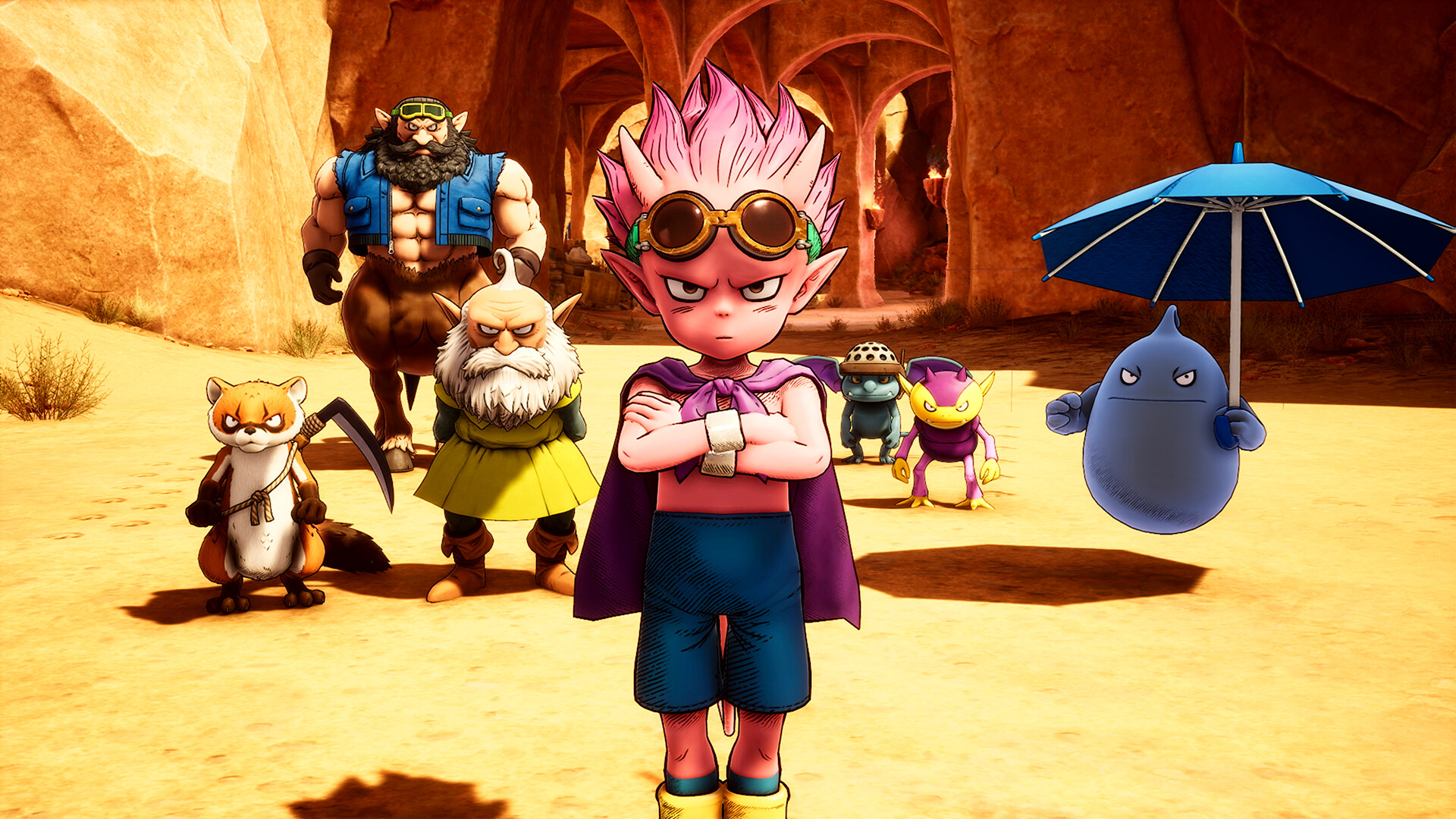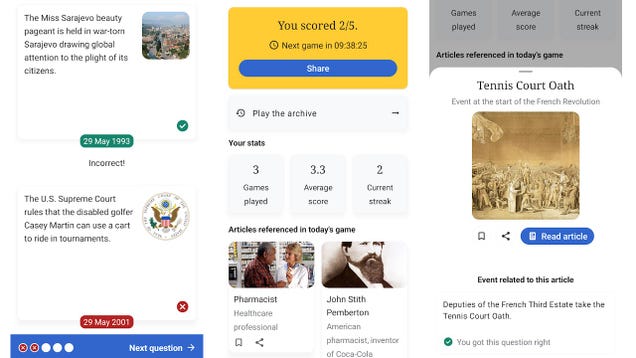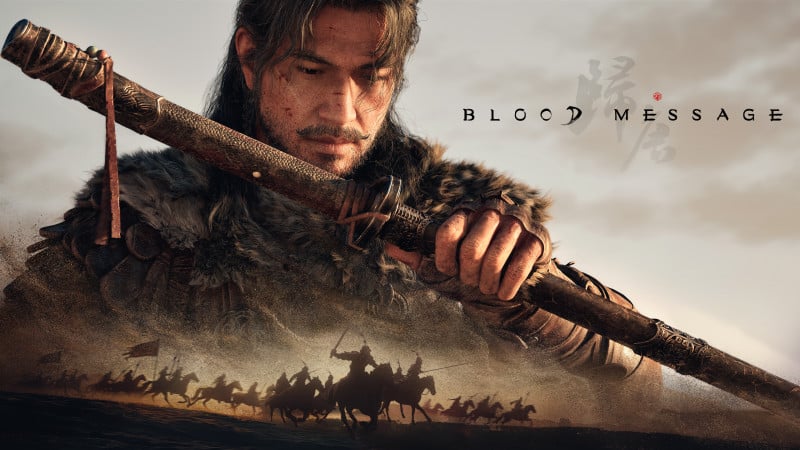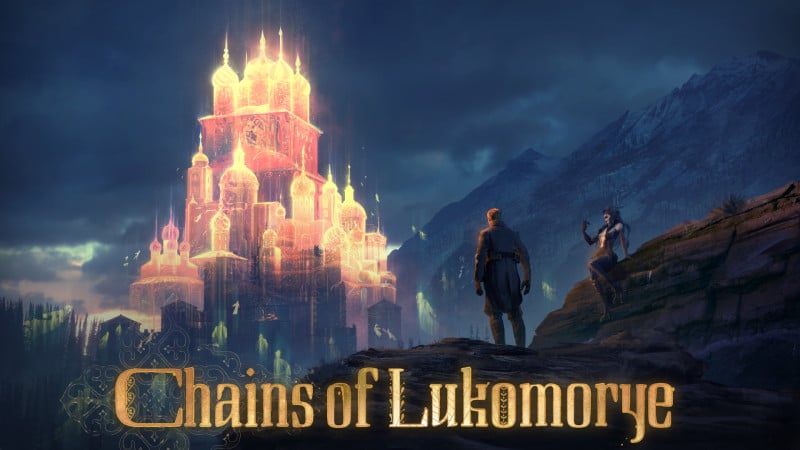
The game adaptation of Akira Toriyama's post-apocalyptic manga is good, but so far, not great.
You can play a demo of Sand Land on Steam right now, but I wouldn’t recommend it.
The three hours I recently spent with a preview build of Sand Land were a lot more promising than what’s publicly available right now: I agree with most users on Steam that it’s a bafflingly bad demo, dropping the player into a drab world with three spawnable vehicles and a bunch of giant enemy crabs and dinos to shoot at. It soured me on the prospect of this adaptation, but thankfully my hands-on with the full game piqued my interest again, indicating that maybe Akira Toriyama’s 2003 post-disaster manga has gotten the adaptation it deserves.
Sand Land is about the adventures of a weird little demon in a land with abundant sand. The world—or land, I guess—is a perpetual warzone by dint of severe water scarcity, and the situation is so miserable that Sheriff Rao dares exhort demons for aid in finding a Legendary Spring with an inexhaustible supply of water. The demons agree to help, sending main character Beelzebub the Sheriff’s way, in the company of his elderly sidekick Thief.
A serialised anime adaptation is hitting Hulu and Disney+ this month, but this videogame drops on April 25. It’s developed by ILCA, whose last game was the well-received One Piece Odyssey. Sand Land is a real time action affair with a big focus on vehicular combat. Think the cel-shaded desert vibe of Borderlands, and then imagine they made a Saturday morning cartoon version of Mad Max. Mash those things together: Sand Land.
What the public demo utterly fails to convey is that Sand Land is an open world action-adventure game with light RPG elements that feels spiritually catapulted from the late ’90s / early 2000s. I’m not levelling criticism when I say this game feels like a harkening to the PlayStation 2 era: it has simple demands on the player and boasts an almost Jak 2 level of variety, for better or for worse. It also has a vintage 3D Zelda quality to it, in the way new abilities are won and then utilised in dungeons rife with environmental puzzles, with those same abilities aiding exploration in the overworld map. Except instead of special powers or magical items of clothing, vehicles comprise your bag of tricks.
(Image credit: Bandai Namco Entertainment)
The opening hours of Sand Land has ‘Bub and crew seeking out their first ride, a big bulbous battle tank which can alternate between machine gun fire and missiles. To get it, I need to infiltrate a military base with some light instafail stealth (the usual rhythm of creeping, hiding, leaping between buildings, and surprise takedowns). It’s not particularly clever or tense, but I suppose it makes contextual sense that a diminutive demon might not want to enter a military base with just his diminutive fists.
It’s not even the first stealth sequence: earlier, sidekick Thief (dressed up as Santa) tiptoes around a town stealing food and water. It’s kinda weird that Sand Land makes me do two stealth missions in the space of an hour, but once I’ve got my tank I’m out dune hopping.
The vehicular combat—both at the start of our demo and throughout—isn’t particularly challenging. I just circle strafe around baddies and shoot while alternating between ammunition types. Later on, fighting against a big squid boss in a dungeon, I perform basically the same manoeuvres but this time in a hovercraft, though I also need to jump or hover over the occasional sweeping attack. By slight contrast there was an early boss battle against a cargo airship (big flying ball, basically) that required me to take cover outside of its firing lines, and also to manoeuvre smartly when being attacked from directly above. I didn’t encounter anything else as complex during my hands-on.
That’s not to say more complexity isn’t coming, especially when the vehicle customization offers a lot of depth. Discrete components of each ride—things like primary and secondary weaponry, suspension, treads and exhaust—are all swappable in a fashion reminiscent of Armored Core. My hands-on let me see the possibilities here, but there wasn’t much to play around with; the below video sheds some light on the range of customization possibilities, and they’re greater than what I got to play with.
Aside from the tank and the hovercraft, there was also a motorbike and a mech in the build I played (perhaps even more in the final game: there’s room in the UI). It’s even possible to switch between vehicles seamlessly on the fly, so that if I’m not keen on the tank’s performance while fighting against a giant sand lobster, I can switch to the mech and punch it to death instead.
One aspect of Sand Land I wasn’t expecting was the utilisation of vehicles as puzzles and keys. The dungeon I explored—one of two lengthy examples I played during my hands-on—was a water-themed temple that required me to switch between on-foot and the hovercraft to navigate flooded crypts. The puzzle solving wasn’t particularly tricky, mostly involving the raising and lowering of water levels, but I like that the vehicles are utilised in fun ways outside of combat. It’s also possible to use the mech to punch through big rock walls in the overworld, and to use the hovercraft to traverse otherwise impassable chasms.
(Image credit: ILCA)
I’m hoping this makes open world exploration more fun in the final game, because it was hard to get a feel for the world itself during my hands-on. There is truly a lot of sand in Sand Land, but unlike the demo—which seems to deliberately cherry pick the most dreadfully boring pocket of the game—there is some variety in the sights, and some gorgeous cartoon rock formations. There’s also a Forest Land, named because it is green and forest-y. Moving from sand land, into dungeon land, and then into forest land, was definitely a breath of fresh air after quite some time spent in shades of yellow.
With the recent passing of Akira Toriyama bringing his formidable legacy back into the limelight, it’s likely Sand Land will attract more interest than it might otherwise have done, and the English release of its anime adaptation won’t hurt either. Toriyama’s distinctive style is written all over Sand Land, and while I didn’t feel much in the way of interest towards the cast during my brief time with the game, I’m sure the film establishes each personality more distinctly. As a videogame distinct from its source material, Sand Land is a breezy adventure that will probably be forgotten just as quickly as it’s completed, unless the final game has some tricks up its sleeve.



